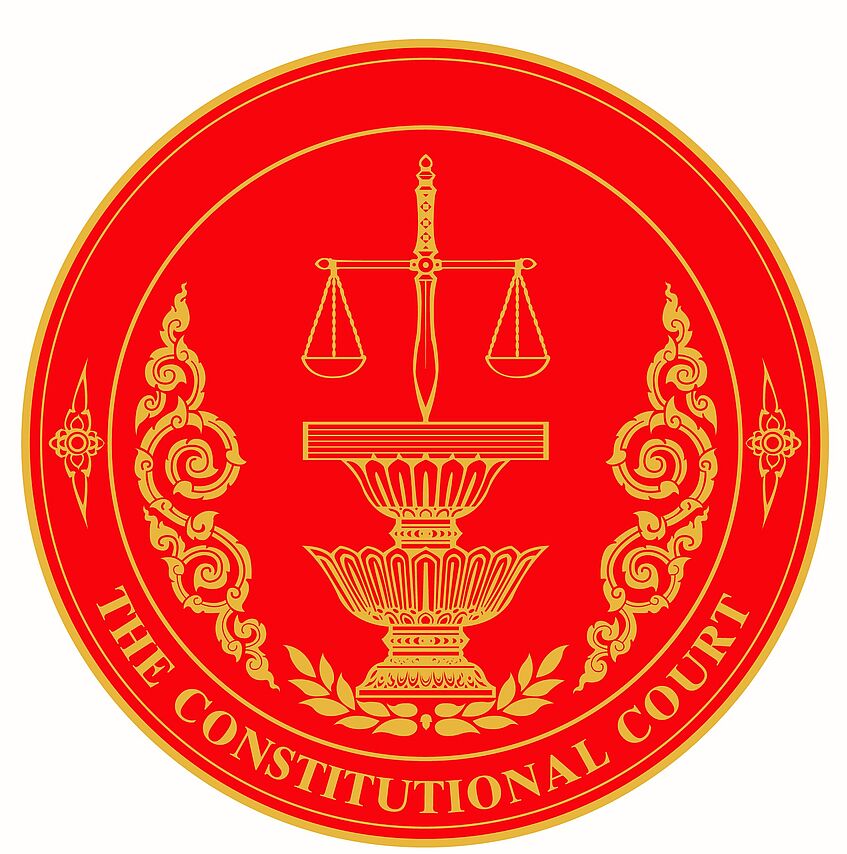
According to judicial review system prevalent in the modern world, the Constitutional Court of the Kingdom of Thailand is an important mechanism in performing the duty of legal interpretation in order to be neither contrary to nor inconsistent with the Constitution. Consequently, the Constitutional Court fulfills an important role concerning the protection of the Constitution, the safeguarding of the rights and liberties of the people, the assurance of public interest, and the maintenance of the democratic regime of government with the King as Head of State.
To uphold the supremacy of the Constitution, the performance of political organs and institutions shall be controlled in order that they are in agreement with the Constitution. Furthermore, in connection with Thai society's aspirations, the Constitutional Court's powers and duties do not concern only the protection of the Constitution, but also extend to the security of the democratic regime of government with the King as Head of State.
The Constitutional Court of the Kingdom of Thailand was first established by the Constitution in 1997. It is a specialized court following the idea of Hans Kelsen to safeguard the supremacy of the Constitution. The Constitutional Court of the Republic of Austria in 1920 and the Constitutional Court of the Federal Republic of Germany in 1949 are the models for the Thai Constitutional Court. The Constitutional Court of the Kingdom of Thailand now exercises its jurisdiction on the provision of the Constitution of 2017 and consists of the President and eight Justices approved by the Senate and appointed by the King.
Under the principle of the Rule of Law, Democracy and Human Rights, the Constitutional Court of the Kingdom of Thailand has duties and powers as follows:
1) To consider and adjudicate on the constitutionality of a law or bill.
2) To consider and adjudicate on questions regarding the duties and powers of the House of Representatives, the Senate, the National Assembly, the Council of Ministers or other Independent Organs.
3) Others duties and powers prescribed in the Constitution, for example, to examine the constitutionality of draft amendments to the Constitution and actions in Constitutional Complaint cases.
"Adhere to the rule of law, Uphold democracy, Protect the rights and liberties of the people"
